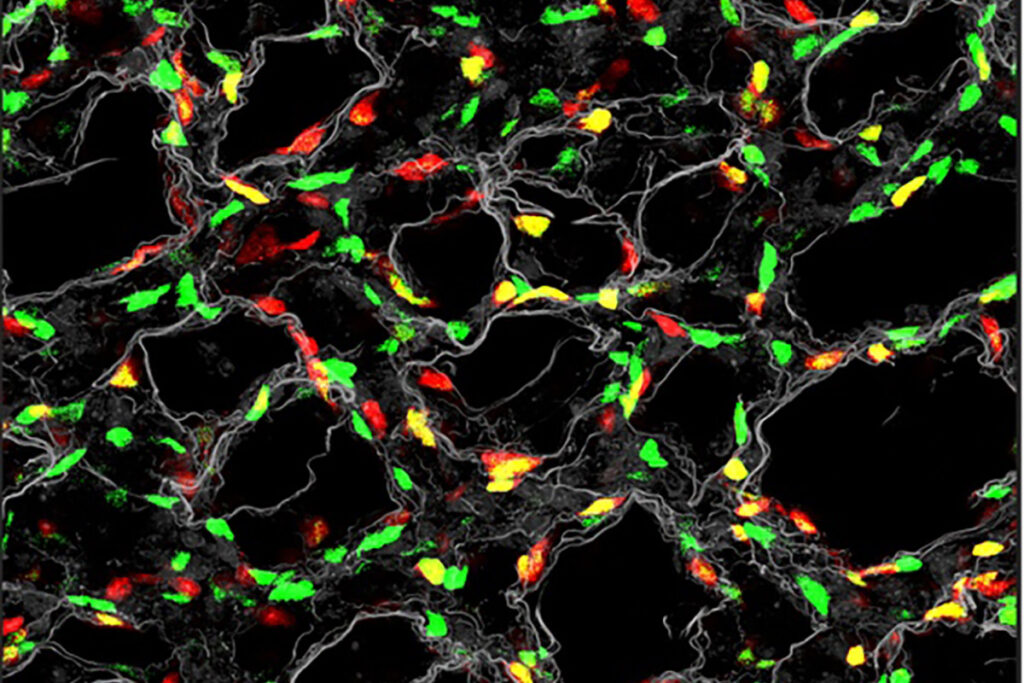
David M. Ornitz, MD, PhD, the Alumni Endowed Professor in the Department of Developmental Biology at Washington University School of Medicine in St. Louis, has been awarded a four-year grant of $740,000 annually from the National Institutes of Health (NIH). The funds will support his work to uncover how cellular interactions during neonatal lung development impact the overall health of infants’ lungs over time. This research will provide a more thorough understanding of the molecular culprits that cause bronchopulmonary dysplasia (BPD), also known as chronic lung disease of prematurity, a lung condition that affects premature babies and can lead to lifelong respiratory problems.
The way lungs develop in infants is crucial to lung health in adults. In the final phase of lung development, which occurs over the first two years after a baby is born, the lung surface area increases, and the walls of the alveoli — tiny air sacs that allow oxygen to enter the bloodstream from the lungs — become very thin to make gas exchange efficient. This developmental process is called alveologenesis. In some infants, particularly those born prematurely, this phase of lung development becomes impaired, as in bronchopulmonary dysplasia, which affects around 500,000 preterm infants in the U.S. annually. This complication often results in chronic respiratory disease. The Ornitz lab has found that a molecule called fibroblast growth factor 18 (FGF18) is critical for neonatal lung development and that mice that lack FGF18 have defects in alveologenesis.
Ornitz will use several specialized types of single-cell sequencing to identify molecular regulators throughout the final stage of lung development that influence cellular interactions, division, differentiation and death. This work will address critical knowledge gaps surrounding potential targets for therapies both for premature infants with BPD and for promoting lung regeneration in adults with respiratory disease.


